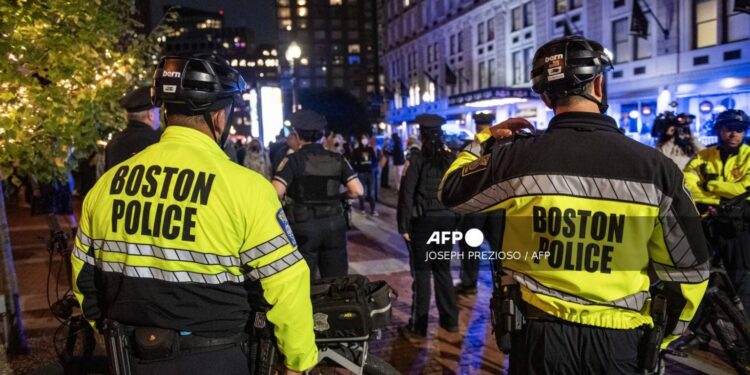Boston police intervened to keep pro-Palestinian and pro-Israel protesters apart outside the Israeli consulate on September 25, 2024, as the death toll rose from Israeli airstrikes in Lebanon. Lebanon’s health ministry reported 51 fatalities and over 220 injuries following three days of Israeli raids against Hezbollah.
France, working alongside the United States, announced a proposal for a 21-day ceasefire in Lebanon during an emergency UN Security Council meeting. French Foreign Minister Jean-Noel Barrot stated that the temporary truce would allow time for negotiations toward a more durable peace.
“We’ve made significant progress, and with our American partners, we’re pushing for a diplomatic resolution,” Barrot said.
UN Secretary-General Antonio Guterres urgently called for an immediate ceasefire, warning of the severe risk of a broader regional conflict. However, Israel remained non-committal, maintaining its focus on neutralizing Hezbollah.
“We appreciate the diplomatic efforts to prevent a full-scale war, but we will continue to act in line with our objectives,” said Israel’s UN envoy, Danny Danon.
Meanwhile, the U.S. administration continued to advocate for diplomacy. President Joe Biden reiterated the urgent need to avoid “all-out war” in the region, while U.S. Secretary of State Antony Blinken emphasized that the risk of escalation was acute.
Iranian Foreign Minister Abbas Araghchi cautioned that the region was nearing a full-scale catastrophe, threatening to escalate retaliation against Israel if attacks on Iranian interests continued.
Despite growing international pressure, Israel continued its offensive in Lebanon, leaving hundreds dead and displacing thousands, according to the Lebanese health ministry.
























